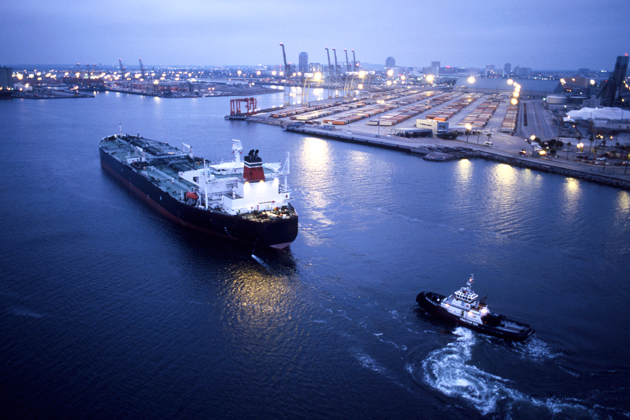- ENL, Chinese Firms to Move Cargoes Using Barges
As part of efforts to find a lasting solution to the perennial gridlock in Apapa, the ENL Consortium, operators of Terminals C and D at the Lagos Port Complex, has entered into a strategic partnership with a Chinese logistics giant, Sinoma Cargo International, to evacuate cargoes from the port using barges.
According to a statement on Sunday, the partnership also incorporates Josephdam Port Services and Lianyungang Port of China.
“The Lianyungang Port is among the 10 largest ports in China and the 30 largest ports in the world. The cargo throughput of the Lianyungang Port is 210 million tonnes per year, while its container throughput is five million TEU per year,” the statement read in part.
It quoted the Executive Vice Chairman/Chief Executive Officer, ENL Consortium, Princess Vicky Hasstrup, as saying during the China-Nigeria Core Liner Conference in Lagos on Friday that the existing poor transport infrastructure in Nigeria was affecting the economic performance and competitiveness of the ports.
She said the partnership became imperative given the persistent gridlock on the port access roads in Apapa, which had made cargo evacuation from the ports difficult.
Hasstrup said the initiative, which will be implemented in conjunction with the Lianyungang Port of China, would facilitate the evacuation of cargoes from the terminals through barges, and also help to promote mutual cooperation and exchange between Liayungang and the Lagos ports.
She stated, “We have been to the Lianyungang Port on the invitation of Sinoma, and there, we signed a friendship agreement sometimes in July. They also expressed their willingness to come to the Nigerian ports to see what ENL and other ports look like.
“This conference was organised to brainstorm on how to have a better operational logistics, which is Sinoma’s core duty. We know what it is getting in and out of Apapa and discharging of cargo, because of the present traffic situation in Apapa and its environs.
“So, this afforded us the opportunity to brainstorm on what else can be done under a Public-Private Partnership arrangement other than road since their core business is logistics.
“Sinoma has told us they would want to bring barges that can evacuate cargoes at the seaside in large volumes. The barges are the types that we have not seen in Nigeria that can take several hundreds of tonnes of cargo at once.
The General Manager, Sinoma Cargo, Li Zhanzhu, was quoted as saying that the firm had established good cooperative relationship with the ENL Consortium and Josephdam Port Services, which both handled several consignments shipped to Nigeria from China.
He said from January 2018 till date, the firm had operated 12 batches of Lianyungang- Lagos logistics line, organised and transported more than 410,000 dead weight of general cargo and transported more 2,000 TEU of containers.
The products, according to him, cover steel and templates, engineering equipment and tools.

 Naira4 weeks ago
Naira4 weeks ago
 News3 weeks ago
News3 weeks ago
 Education4 weeks ago
Education4 weeks ago
 Social Media4 weeks ago
Social Media4 weeks ago
 Economy4 weeks ago
Economy4 weeks ago
 Investment4 weeks ago
Investment4 weeks ago
 Dividends4 weeks ago
Dividends4 weeks ago
 Business3 weeks ago
Business3 weeks ago





























